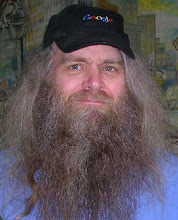le carre's new 'mission song'
is getting mostly positive reviews
praising its unprecedented good humor
but they neglect what seems to me
its happiest virtue:
tradecraft is back
for the first time since Smiley
JlC offers his special delight
of showing how things must work
behind the veil of official secrets
this time from the novel perspective
of the spies' own house translator
in my
11-dimensionalrating system for thrillers
tradecraft is collaped into infotainment
authors using their novels to make
unfamiliar domains
painlessly familiar
with Patk O'Brian the acknowledged titleholder
a related dimension
is 'texture'
which can be as mundane
as scents and sounds 'painted on'
to enhance realism
(Graham Greene famously
traced his characters' routes
in person
noting plausible details)
because it's a peculiarity
of human memory
that we can easily recognise
and appreciate
that a detail is appropriate
but only the rarest novelists' minds
can summon such credible details
(rather than obvious cliches)
on command
the 'nicely observed detail'
for an experienced reader of fiction
brightens the page
and even one such
detail per page
is an occasion for gratitude
so Patricia Highsmith's
1965 'The Story-teller'
is cause for celebration
profligately piling on
almost one detail per sentence
(did they come so easy for her?
or did she work that much harder?)
maintaining our fascination
thru an unhurried exposition of the plot
but the astonishing eventual payoff
is a profound parable
on The Artist's Faith
for the story recounts the
Job-like trials
of a writer of thrillers
who researches a plot
by walking thru the motions
of having murdered his wife
and then of course she's disappeared
and his playacting
increasingly incriminates him
but at any moment
he could defuse those growing suspicions
simply by explaining the truth
while he chooses instead
to live out the full drama
as if he were guilty
keeping true to his muse
and tracking events and reactions
as the whole world seems
to be rising up against him
real relationships destroyed
his future imperilled
so that the reader screams
'make this stop!
just tell them!'
and i'm reminded
of one of Joyce's paradoxical claims
that he had greater
faith
than any modern man
which the catholics
(against all evidence)
have used to argue
that he was always secretly catholic
and he contrasted faith with doubt
declaring the world to be
suspended in doubt
every choice an existential crisis
leading the world either
towards heaven or hell
and i think Joyce's Faith
(as the world screamed
'make finnegans wake stop!')
was simply that life
can become more heavenly
that Earth wasn't created
as an inevitable human hell
where an artist could only shrug
like vonnegut's cynical
'hi ho'
so it alarms me to see
lately across the blogosphere
a growing association between progressive politics
and the universal religion-bashing
of Dawkins&co
because real faith
is infinitely better than cynicism
